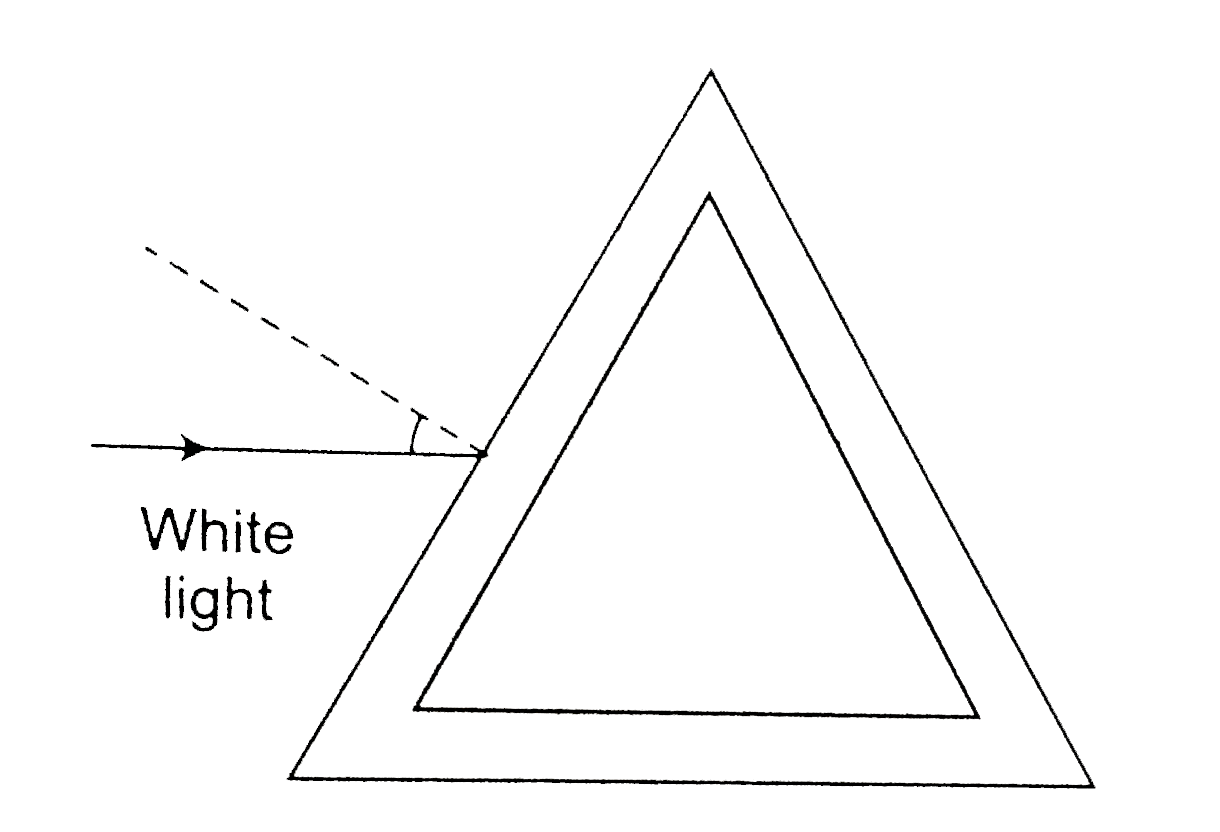The phenomenon due to which white light splits into seven colours on passing through a prism is called spectrum.
Step by step video solution for The phenomenon due to which white light splits into seven colours on passing through a prism is called spectrum. by Physics experts to help you in doubts & scoring excellent marks in Class 8 exams.
Updated on:21/07/2023Similar Questions
Knowledge Check
Which of the following colours of white light deviated most when passes through a prism ?
ARed lightBViolet lightCYellow lightDBoth (a) and (b)In refraction of light through a prism the light ray:
Asuffers refraction only at one face of the prismBemergest out from the prism in a direction parallel to the incident rayCbends at both the surface of the prism towards its baseDbends at both the surfaces of the prism opposite to its base.
A beam of white lighe passing through a hollow prism gives no spectrum.
View Solution(a) Draw a ray diagram to explain the term angle of deviation.
(b) Wgy do the component colours of incident white light cplit into a spectrum whilepassing through a glass prism, explain.
(c) Draw a labelled ray diagram to show the formation of a rainbow.
View SolutionFor refractin of light through a prism
View SolutionA beam of white light is incident on a hollow prism of glass. Then

View SolutionWhen a ray of sun light passes through the prism, each colour of light has its own speed in the glass. The seven colours come out of the prism with different angles of deviation. Red deviates least and blue deviates maximum. Thus a prism can disperse a white light into seven colours which is called colour spectrum.

For a thin prism, the angle of deviation is given as δ=(n−1)A. The angle of dispersion is given as ϕ=δv−δr. The dispersive power of a prism is ω=ϕδmean=ϕδy
Using the above ideas, give answer the following questions.
A prism has R.I. for violet and red nv=1.523,nr=1.5145. If the angle of prism is A=2∘ the dispersive power of the prism is :
View SolutionName the colour of white light which is deviated (i) the most, and (ii) the least, on passing through a prism.
View Solution
